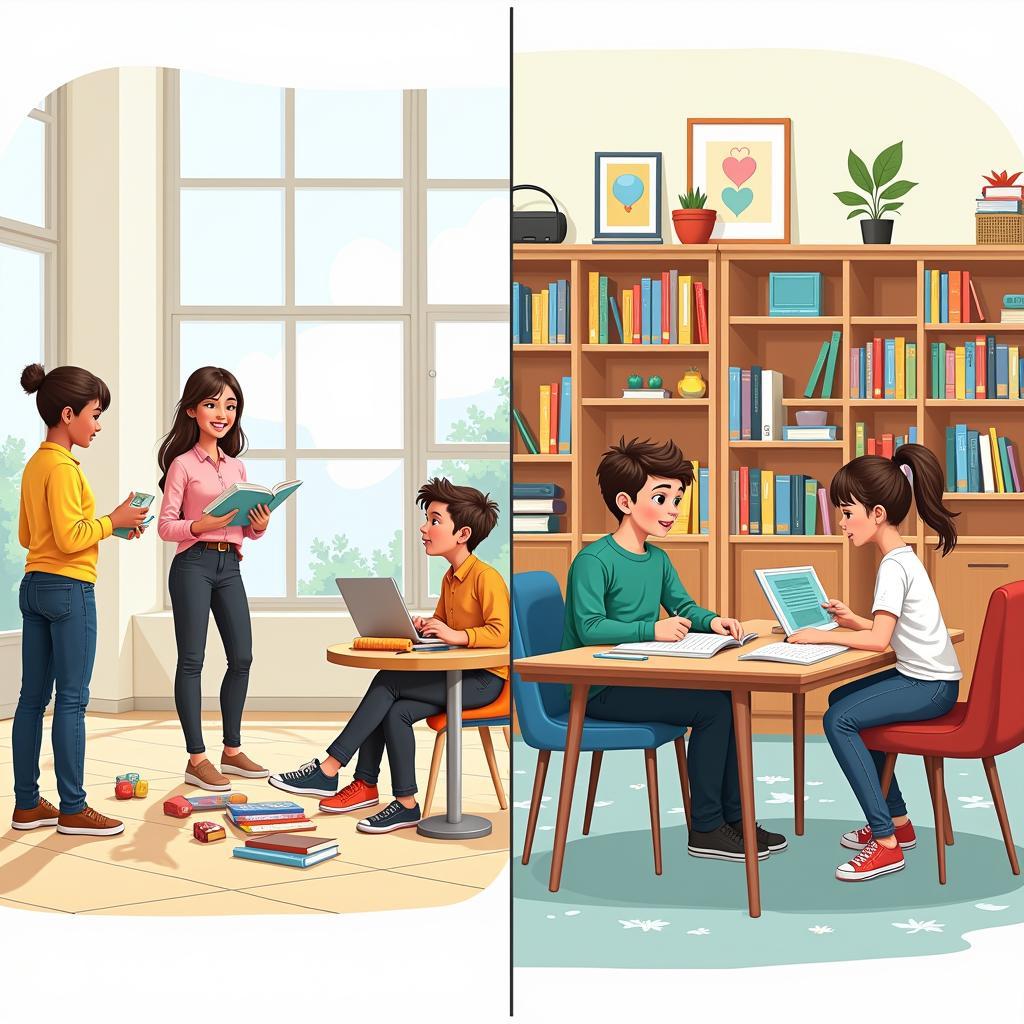The debate between experiential learning and book-based education has been a recurring theme in IELTS Writing Task 2, appearing frequently in recent years. This topic reflects the ongoing discussion in educational methodology and has appeared in various forms across different test versions, particularly in Asia-Pacific test centers.
Topic Analysis
Some people believe that the best way to learn is by experiencing things firsthand, while others think that it is more effective to learn from books and other written materials. Discuss both views and give your own opinion.
This question requires:
- Discussion of learning through direct experience
- Analysis of learning through written materials
- Personal opinion with supporting arguments
- Balanced approach to both perspectives

Band 8 Model Essay
In the modern educational landscape, there is considerable debate about whether practical experience or theoretical knowledge from books is more effective for learning. While both approaches have their merits, I believe a combination of both methods yields the best results.
Firstly, experiential learning offers unique advantages that cannot be replicated through reading. When individuals engage directly with a subject matter, they develop muscle memory and intuitive understanding that books alone cannot provide. For instance, learning to swim or drive a car requires physical practice and cannot be mastered solely through theoretical study. Moreover, hands-on experience often leads to deeper retention of knowledge as it engages multiple senses and creates memorable neural connections.
However, books and written materials serve as invaluable repositories of accumulated knowledge. They provide structured information, detailed explanations, and systematic approaches that help learners understand complex concepts efficiently. For example, medical students must thoroughly study anatomy textbooks before performing actual surgeries, as these materials offer comprehensive knowledge that would be dangerous or impossible to acquire through trial and error alone.
In my view, the most effective learning approach integrates both experiential and theoretical learning. This combination allows learners to benefit from the documented wisdom of others while developing practical skills through direct engagement. For instance, a chef-in-training might study culinary texts to understand food science and traditional techniques, but must also spend considerable time in the kitchen experimenting with ingredients and methods to truly master their craft.
Therefore, rather than viewing these approaches as competing alternatives, we should recognize them as complementary components of effective learning. By leveraging both practical experience and written resources, learners can develop a more comprehensive and nuanced understanding of their subject matter.
Band 6.5 Model Essay
These days, people have different opinions about the best way to learn new things. Some prefer learning through personal experience, while others believe reading books is better. I think both methods have advantages and disadvantages.
Learning through experience has many benefits. When people try things themselves, they remember the lessons better. For example, when someone learns cooking by actually making dishes, they understand the process more clearly than just reading recipes. Also, personal experience helps people learn from their mistakes, which is important for improvement.
On the other hand, books are also useful for learning. They contain knowledge from experts and can save time. For instance, students can learn about history or science from textbooks without having to discover everything by themselves. Books also provide organized information that helps people learn systematically.
In my opinion, combining both methods is the best approach. Some things need practical experience, like learning to swim or play music. Other subjects, like mathematics or literature, require reading and studying from books. Using both ways helps people learn more effectively.
Finally, I believe schools and universities should use both teaching methods. They should give students chances to practice what they learn from books. This will help students understand subjects better and remember them longer.
Analysis of Band Scores
Band 8 Essay Features:
- Sophisticated vocabulary: “accumulated knowledge”, “neural connections”, “repositories”
- Complex sentence structures
- Clear paragraph organization
- Strong cohesive devices
- Well-developed arguments with specific examples
- Natural integration of advanced vocabulary
Band 6.5 Essay Features:
- Simple but clear arguments
- Basic vocabulary with some repetition
- Less sophisticated sentence structures
- Adequate organization
- Limited use of complex expressions
- Basic examples and explanations
Key Vocabulary
- experiential (adj) /ɪkˌspɪriˈɛnʃəl/ – based on experience
- theoretical (adj) /θɪəˈrɛtɪkəl/ – based on theory rather than experience
- intuitive (adj) /ɪnˈtjuːɪtɪv/ – using natural understanding
- repository (n) /rɪˈpɒzɪtəri/ – a place where things are stored
- accumulated (adj) /əˈkjuːmjʊleɪtɪd/ – gathered over time
- systematic (adj) /ˌsɪstəˈmætɪk/ – done according to a fixed plan
- complementary (adj) /ˌkɒmplɪˈmɛntəri/ – combining in a way that enhances qualities
Consider practicing with these similar topics:
- Traditional vs modern learning methods
- Online learning vs classroom education
- Role of technology in education
- Self-study vs guided learning
Share your practice essays in the comments for feedback and discussion!